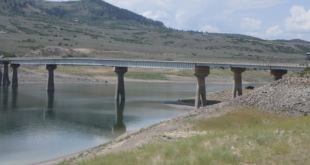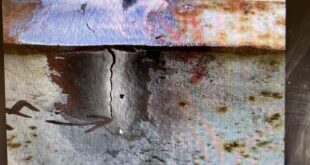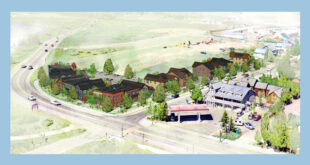Three “reasonable” tax increases
by Mark Reaman
It looks like Crested Butte voters will be considering several taxes focused on funding affordable housing in the November election. An increase in the current town sales tax rate and the short-term rental excise tax along with a new “non-primary residence” tax would bring in approximately $2.1 million annually dedicated to affordable housing and will be presented in two separate ballot questions with the STR tax increase standing on its own.
While not official until a council vote is taken at the August 16 meeting, the council determined at an August 10 work session that they would put forth the three tax proposals. They include the new non-primary residence tax (formerly known as the empty house tax, formerly known as the dark house tax, formerly known as the community preservation fee) of $2,500 per year; an increase in town sales tax of .5 percent; and an increase in the short-term rental excise tax from 5 percent to 7.5 percent. The $2,500 tax would apply to empty residential lots in town as well as built units.
Council hopes to link the non-primary residence tax and the sales tax increase together in one ballot question so that it is clear that both second homeowners and year-round locals will be contributing to affordable housing. There would be no sunset on any of the taxes in order to more easily facilitate future bonding opportunities. An escalator clause on the new non-primary residence tax would be tied to the Consumer Price Index. Basically, a primary residence would be defined as a unit that is occupied by an owner or rented at least 180 consecutive days. Money raised would go to the town’s affordable housing fund budget.
Town staff will now polish the details and turn the council’s direction into ballot language with the help of special legal counsel. The language will be presented to the council for a vote at the August 16 meeting. If approved by voters in November, the council would then enact the taxes through an ordinance that could among other things, include exemptions to the proposed tax. Those potential exemptions are expected to be discussed this fall before the vote takes place. A primary exemption seemingly favored by the council is to allow second homeowners to contribute to a non-profit that deals with affordable housing in lieu of paying the tax. Second homes that have an accessory dwelling rented long-term would also likely be exempted.
Public weighs in…again
There has been copious public comment on the issue over the last month and the Monday work session was no exception. Local residents and second homeowners both spoke for and against the idea of the taxes.
“Decoupling the two main taxes is a terrible idea,” said John Spencer. “The idea was to have a broad-based support for this funding. If the empty house tax passes and the sales tax doesn’t, it violates the fundamental idea of collaboration.”
“We have a huge affordable housing crisis but I’m not sure you can assume the residents want this on the ballot,” said Glo Cunningham. “I’m very much against this approach and feel it alienates the second homeowners in town. They contribute so much to our community amenities. The burden should be countywide and not just on Crested Butte. I suggest forming a committee to steer second homeowners to places they can help with the problem and get a write-off. Give people a chance to choose how to help before going to a tax.”
Ben Wright agreed. “The non-primary residence tax is divisive and a dangerous road to go down,” he said. “The second homeowners and locals have to work together. We shouldn’t be creating anger between them. If we ask nicely it will happen. I agree the tax isn’t fair to them but it is also not fair that we have to advocate so strongly for housing our local workers. We can meet in the middle. The fact is we need something in the immediate future. If it is a state of emergency, then do something.”
Lindsey Freeburn said it was important to have a reliable source of funding to address the housing issue and not rely on donations. “This is one tool in the toolbox so move forward with the ballot issue.”
“John and I want to help but we’ve received a lot of feedback that there is a lot of anger among second homeowners,” said Haden Spencer. “It has been a rushed, flawed process and you have had only six weeks to decide a policy that is groundbreaking. I ask you to put the brakes on and allow more conversation.”
“Having a compelling plan and working with everyone is the way to go,” said one second homeowner. “And a flat tax is very regressive.”
Jim Starr said it was beyond the time to make significant changes and this tax proposal did that. “We are losing the core of our community,” he said. We’ve always said here that growth should pay its own way but this is a situation where I think the non-primary residence fee should be coupled with a sales tax increase.”
“We are supportive of finding a sustainable funding solution but this idea is divisive,” said Spencer Shomer. “It should be borne by all property owners.”
Bennet Link said he’s noticed the gulf widening between the ‘haves’ and the have nots’ in Crested Butte but an empty hosue tax would broaden that divide.
“Everyone loves it when someone else is paying to solve a problem,” said Todd Huckstrom. “That’s human nature and I could see one tax passing and the sales tax not.”
Julie Henning said the people who short-term rent their property are the town’s innkeepers that contribute to the main business of Crested Butte – tourism.
Cole Thomas suggested every time a short-term unit is rented to someone new, a surcharge of say, $50 should be collected.
John Spencer said going beyond a $2,500 fee would antagonize a large part of the community. He said a $2,500 fee felt more like locals were getting a homestead exemption on property tax that is common in many states.
Council comments
“One reason I like the sales tax is because it spreads the burden to those living outside Crested Butte as well as to tourists. I like that we all participate,” said mayor Jim Schmidt. “I’ve been against the empty house tax since the beginning. It strikes me as unfair for a number of reasons. And it is in fact divisive and I’m disappointed some members of our town staff enflamed that. This is not just a problem in Crested Butte or the Gunnison Valley. It is everywhere.”
“I’m in Vermont and its on the front page of their paper,” noted councilmember Mona Merrill. “And the property taxes here are a lot more than in Crested Butte. This is very challenging but everyone agrees we need more money to address the crisis. I am worried that too many exemptions will make it useless. ”
Councilmember Mallika Magner said she was struggling with many elements of the proposal. “I struggle with the short time span we’ve had to discuss it. No one thinks it will drive long-term rentals. It is an income stream,” she said. “I don’t like the lack of a specific project for the money. It is important to show that we value our second homeowners.”
“To put this type of funding toward affordable housing would be a major step,” said councilmember Will Dujardin. “A lot of people talk about how divisive this is. A majority of my friends don’t live in town anymore. The writing is on the wall. We need funding to solve these problems and we do have specific programs in Sixth and Butte and the Indeed program. Real money to support affordable housing is awesome.”
“I agree there are concrete projects,” said councilmember Jasmine Whelan. “No one wants second homeowners to feel attacked but donations as a funding source are not reliable. We need a regular source of funding. We need to confront the fact the community is already splintering and we need to find a way to keep it together. Just the cost of living puts local workers on the edge.”
“I’m not interested in trying to manipulate the market but one characteristic of this town is the diversity of people living here, from lift ops to retired executives,” said councilmember Chris Haver. “I feel the tax measures should be linked to show unification. I believe the funds would help keep the diversity in town.”
“I think a reasonable non-primary residence tax linked to a sales tax would ease the burden on the community,” said councilmember Jason MacMillan. “I believe the balance within the community and the free market is broken and agree government needs to step in. What has been most divisive is people getting kicked out of their houses. Workers having to live outside of town is an affront to what I believe is community. I’m in favor of a reasonable tax along with a sales tax increase that keeps it under ten percent.”
Council went through a list of questions to find a consensus on where to land. They agreed to a .5 percent increase in sales tax, a $2,500 fee on non-primary residences, and an increase to the STR excise tax. The details will be discussed again at the August 16 meeting where the council will vote whether or not to place it on the November ballot.
 The Crested Butte News Serving the Gunnison Valley since 1999
The Crested Butte News Serving the Gunnison Valley since 1999




